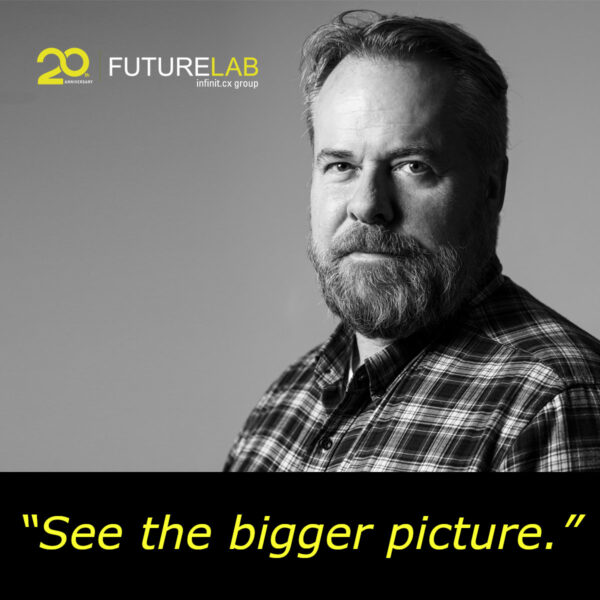Michael Porter popularized the idea and proposed generic strategies for organizations like Cost Leadership and Differentiation. Normally I’m not a fan of generic strategies as I don’t think they really lead to a sustainable advantage. IMHO most strategies should take such good use of your organizations talents, capabilities and resources that it should be virtually impossible to copy your strategy. In other words if you are worried about sharing your strategy with people because you think people might steel it, I’d suggest you find a new strategy.
That being said I’ve realized recently that there are a couple of generic digital strategies that, rather than being stolen, could help maintain focus and understand what business you are really in. The reason that I think these strategies are important is that I believe the dynamics of competition in the digital and social media space are vastly different than the economics and dynamics of business over the last 50 years or so. The two generic digital strategies I’ve been thinking about are either “Drive the Community” or “Become the platform” (I’ve added social production and data production as examples of value creation, but not limited to that).
- “Drive the community – Social Production” – Yelp, Threadless, Foursquare
- “Become the Platform – Data Production” – Twitter, Google, youtube, WordPress
- stuck in the middle – Facebook, myspace
Drive the Community – Social Production
I’ve been thinking about yelp for many years as I’ve always felt it was at the forefront of companies that were using social production as a way to create intellectual capital. In other words they got their customers to do work for them as opposed to trying to just sell them something. This concept of social production or co-creation has had me enamored with the internet from the very beginning because it changed the economics of creating value. For me the very heart of strategy rests on the value creation question, who does it, why, by what means, and how do we do it better and cheaper than the other guy. This is the reason for intense focus by strategists on “value chains” as a means to explain how different parts of an organization ‘adds value’.
The Drive the Community Strategy answers the question ‘how do we motivate participation that will create a specific value. For yelp that specific value or unit of production was the review and they put in place community eco-system that would drive the creation of reviews, and lots of them.
Now yelp is of course a pure play business, but I think Drive the Community strategy is where organizations need to be looking who want to take advantage of the tremendous activity and engagement that is happening online. Both Dell and Zappos are examples of companies who have used this strategy. What companies need to avoid is trying to become the platform which will waste resources on reinventing core technologies. When I first joined Nokia 3 years ago an agency was in the process of building a blogging tool from scratch in flash, needless to say that was killed and we installed wordpress
Become the Platform – Data Production
Tim OReilly has said on several occasions that data is the ‘intel inside’ of Web 2.0 and for platforms that is often where the money is hidden. No better example of this than Twitter’s recent shift from cash burning startup to profitable business by inking content deals with Google and Microsoft. What twitter has sold access to is it’s data, it’s real time data. What Google and Microsoft and many other startups in the Twitter ecosystem have to do now is provide context to that data in a way that is valuable. Many people of course misunderstand the value of access to this real-time data and talk a lot about real-time news, and IMHO the closer news gets to real time the less valuable it is because the less context it has and the less time has passed to enable reflection, synthesis, or understood what other perspectives were involved. What is fascinating about real-time is as Chris Saad @chrissaad said the other day in a conversation with myself and Jeremiah Owyang @jowyang “real-time inference” is the valuable part, in other words what meaning can automatically derived from various data points in real time.
I’m digressing, but the point is that by becoming the platform Twitter has carved out a sustainably competitive advantage in a very short space of time and has now inked deals with two companies that would have surely preferred to keep their 25M but are being forced to pay for access to data.
So what’s the difference between a Drive the Community strategy and a Become the Platform strategy? Well in many ways i’m sure most organizations are some combination of both. Twitter it could be argued came from a drive the community strategy and became the platform. Possibly, but I think the cautionary tale is for organizations that don’t know if they want to drive the community or become the platform. AOL, Facebook, Myspace etc. and for that reason I think these could be valuable frameworks.
What do you think? Who do you think is doing a good job with either of these, any other companies that are stuck in the middle?
Related Post by Jonathan Rosenberg of Google: The meaning of open. Competitive advantage in the internet age. /via @timoreilly
Image source: iChris
Original Post: http://experiencecurve.com/archives/generic-digital-business-strategies-become-the-platform-or-drive-the-community




